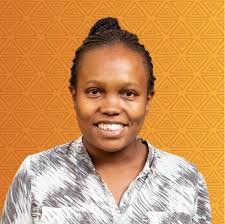Aid cuts, debt hikes, and the way forward from FfDIV
Financing for Development Feminist Reflections
by Diana Mochoge, AFRODAD
The Financing for Development conference took place in a context of shrinking official development assistance, with the United States of America freezing aid in many developing countries—resulting in disruptions in essential assistance such as food distribution, medical support, and education programs. The suspension of funds has halted 13 programs across 12 countries, disrupting essential services that support girls’ education, child protection, and economic empowerment. Notably, immediate consequences of this decision included the discontinuation of maternal healthcare services; the interruption of educational opportunities for girls, and the disruption of gender-based violence prevention programs, putting millions of women and girls at greater risk of violence.
This is happening in the context of increasing debt burdens for countries in the Global South. Africa’s external debt has grown substantially in the last decade, to USD $1.15 trillion in 2024 amidst limited fiscal space and multiple shocks. Public debt and its servicing undermine the ability of governments to meet their commitments on gender equality and the promotion of women’s rights. The costs of servicing this debt are disproportionately borne by women, while the funds borrowed are rarely spent in ways that prioritize women’s rights.
Securing and paying debt typically comes with various macroeconomic policy conditions from creditors to borrowers, commonly including measures pushing governments to reduce expenditures in critical social investments and public services including social protection, health, care, and gender-based violence prevention and response services. According to UNCTAD, a total of 3.3 billion people live in countries that spend more on interest payments than on either education or health. In 2019, 25 countries, 16 of which are African, spent more on debt repayment than on education, health and social protection combined.
FfDIV provided an opportunity for member states to agree on commitments and actions specifically to reducing the debt burden faced by countries in the global south with countries in the Global South highlighting the unfairness of the global financial architecture, which is not fit for purpose. The discussions highlighted the unfair rule system which is creditor centric, and disadvantages developing countries and favors rich countries. Global South countries were calling for the establishment of an intergovernmental process in the United Nations towards a UN framework convention on sovereign debt that would ensure equity, fairness, and inclusion of all parties.
While the language in the outcome document was watered down from the first draft, some progress remains. For instance, para 47(d) of the Sevilla commitment provides for climate-resilient debt clauses and debt pause clauses where appropriate. We know that climate shocks disproportionately impact women and girls; therefore, suspending debt payments in emergencies and shocks would allow small island and African states to reallocate resources to social services. Additionally, para 48(a) includes language on voluntary guiding principles on responsible borrowing and lending. Civil society and governments should call for creditors to ensure terms and conditions benefit women including in projects proposed to countries. Looking forward from FfDIV, we need to ensure that new borrowing is invested in areas that promote gender equality and women’s rights by using comprehensive gender-budgeting tools on both sides of the fiscal coin.


